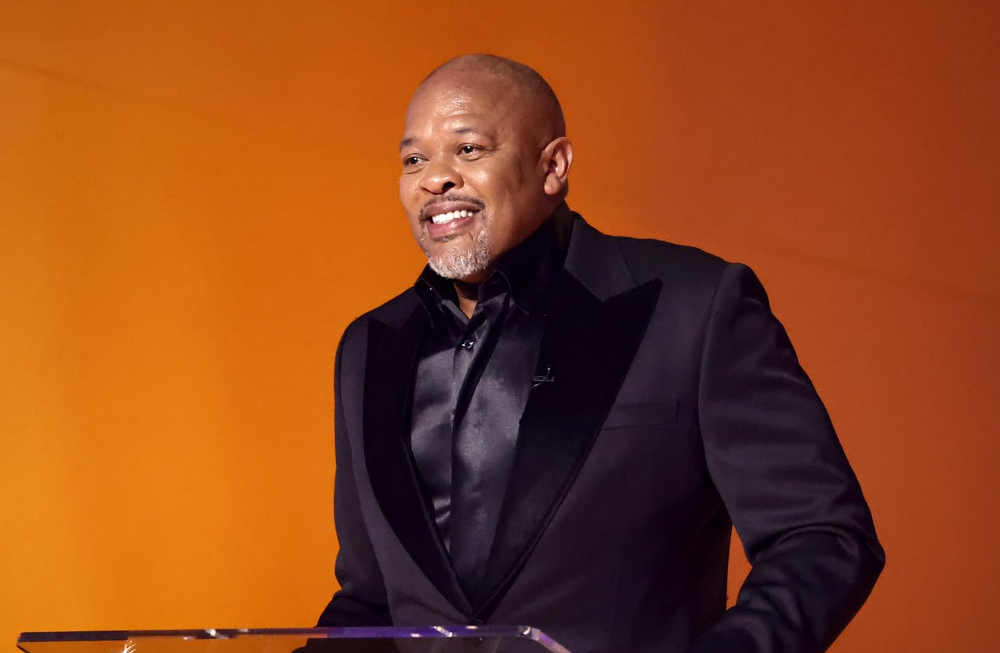Hip-hop legend Dr. Dre sent shockwaves through the music industry with a recent revelation. In an interview on SiriusXM’s “This Life of Mine with James Corden,” the rapper and producer disclosed that he suffered not just one, but three strokes while hospitalized for a brain aneurysm in January 2021.
A Sudden Scare and a Fight for Recovery
Dre, whose real name is Andre Young, opened up about the experience, describing a feeling of intense pain behind his right ear followed by a loss of consciousness. Fortunately, a friend of his son insisted on taking him to the hospital. “I’m in and out of consciousness,” Dre recounted, “and next thing you know, I’m in ICU.”
He spent two weeks in the intensive care unit, battling the effects of the aneurysm and, unbeknownst to him at the time, three separate strokes. These strokes, which occur when blood flow is blocked or interrupted in part of the brain, can cause a range of symptoms and long-term effects.
Dre said he suffered three strokes during those two weeks. The artist was also told he had high blood pressure, which he said came as a surprise because he maintained a healthy lifestyle.
I’m lifting weights, I’m running, I’m doing everything I can to keep myself healthy. I said, ‘Would that have prevented it if I had worked out a little bit harder or ate different or something like that?’ It’s like, no. That’s hereditary!
Dr. Dre
When you go through that situation, it’s crazy especially when I was on my way home from the hospital because possibly, that couldn’t have happened,” the artist said. “I don’t know. It’s crazy, so now knowing that I had no control over that. It’s just something that could happen out of the blue.
The experience made Dre appreciate being alive, he said.
The Importance of Early Intervention
Dre’s story highlights the importance of seeking immediate medical attention for any sudden or severe headaches, especially those accompanied by other concerning symptoms like nausea, dizziness, or weakness. Early diagnosis and treatment of brain aneurysms can significantly improve outcomes and potentially prevent strokes.
A Long Road to Recovery
While details about the severity of Dre’s strokes haven’t been disclosed, he did mention undergoing extensive therapy to regain his health. Recovery from strokes can be a lengthy process, requiring physical, occupational, and sometimes speech therapy. The specific rehabilitation journey depends on the location and severity of the stroke damage.
Raising Awareness and Embracing a New Chapter
Dre’s decision to share his story publicly brings awareness to the often-silent threat of brain aneurysms and strokes. By speaking out, he can encourage others to prioritize their health and be mindful of potential warning signs.
This experience has undoubtedly impacted Dre’s perspective. He acknowledged feeling fortunate to be alive and expressed a newfound appreciation for each day. This shift in perspective is a common theme among stroke survivors, often leading to lifestyle changes and a renewed focus on well-being.
Unanswered Questions and the Road Ahead
Dr. Dre’s interview raises questions about the long-term impact of the strokes on his health. It’s unclear if he experienced any lingering effects or if his creative process has been altered. However, his resilience and commitment to recovery suggest a continued presence in the music world, even if in a different capacity.
Looking Forward: Lessons Learned and a Renewed Appreciation for Life
Dr. Dre’s story serves as a stark reminder that even seemingly invincible figures can face serious health challenges. It emphasizes the importance of prioritizing health, seeking immediate medical attention for concerning symptoms, and embracing a healthy lifestyle to reduce stroke risk factors like high blood pressure, cholesterol, and diabetes.
Beyond the medical aspects, Dre’s experience highlights the importance of cherishing each day and appreciating the fragility of life. His story is an inspiration to all, a testament to the human spirit’s ability to overcome adversity and emerge stronger. Whether Dr. Dre continues to dominate the music scene or carves out a new path, his legacy of impactful music and his recent display of vulnerability are testaments to a remarkable life and career.










+ There are no comments
Add yours